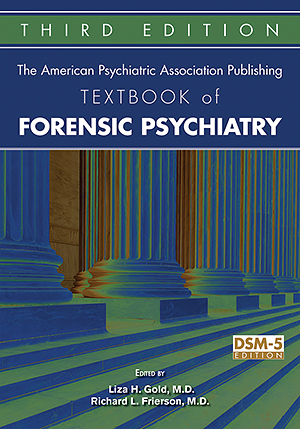Sections
Excerpt
Geriatric forensic psychiatry encompasses a broad and diverse variety of issues. Among the most common evaluations in geriatric forensic psychiatry are those for testamentary capacity and guardianship. Forensic psychiatrists or clinicians may also be asked to assess elderly persons’ competency or capacity for decision making or activities that may pose a risk to themselves or others, such as living independently or driving. Aging persons can also become involved in the criminal justice system, more commonly as victims but also as perpetrators. Evaluators need to consider the particular vulnerabilities of the geriatric population when performing competence to stand trial and criminal responsibility evaluations (American Bar Association Commission on Law and Aging [ABACLA] and American Psychological Association 2005; ABACLA et al. 2006). Additionally, elder abuse can affect a victim’s emotional and financial well-being. This chapter provides starting points to help forensic specialists and clinicians formulate a successful plan for evaluating an elderly person at the intersection of geriatric and forensic psychiatry.
Access content
To read the fulltext, please use one of the options below to sign in or purchase access.- Personal login
- Institutional Login
- Sign in via OpenAthens
- Register for access
-
Please login/register if you wish to pair your device and check access availability.
Not a subscriber?
PsychiatryOnline subscription options offer access to the DSM-5 library, books, journals, CME, and patient resources. This all-in-one virtual library provides psychiatrists and mental health professionals with key resources for diagnosis, treatment, research, and professional development.
Need more help? PsychiatryOnline Customer Service may be reached by emailing [email protected] or by calling 800-368-5777 (in the U.S.) or 703-907-7322 (outside the U.S.).



